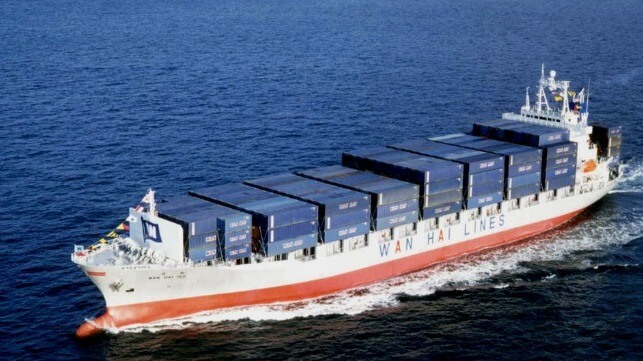Wan Hai: Price-Fixing Penalty Has Little Impact on Bottom Line

When Korea's Fair Trade Commission (FTC) issued a total of $81 million in fines to 23 carriers for price-fixing on regional routes, it intended to send a message to discourage collusion. However, the fine was far below the maximum possible penalty of $670 million, and at least one of the lines has said that it will not have any material effect on its finances.
12 of the firms are Korean and 11 are foreign, including Taiwan's three large carriers, Wan Hai, Yang Ming and Evergreen. In a filing on the Taiwan Stock Exchange, Wan Hai said that its share of the fine - about $10 million - would have "no significant adverse influence" on its bottom line or its operations. "The follow-up conducting treatment will be further discussed with lawyers to protect the company's rights and interests," Wan Hai said in the filing.
Like all container lines, Wan Hai has had a blockbuster year. Its bottom line buoyed upwards by rising freight rates, it posted revenue of about $5.7 billion and earnings of $3 billion over the first three months of 2021 - a profit margin of more than 50 percent. By contrast, its earnings were just $165 million for all of 2019, before the pandemic hit.
Compatriot shipping lines Yang Ming and Evergreen filed similar notices for investors, saying that they would consult with their lawyers. A manager from one of the three lines told Taipei Times that there was a "slim chance" that there would be a concerted effort to push back on FTC's enforcement action, since all carriers benefit from access to the South Korean market and its big-name shippers.
The South Korean government was far from united in its support for the fine. Officials at the Ministry of Oceans and Fisheries - the agency tasked with nurturing and building the Korean shipping industry - quietly told Korea Times that the FTC's enforcement action could give other nations' regulators an excuse to penalize Korean carriers. Further, they suggested that the price-fixing activity was permissible under South Korea's Maritime Shipping Act, which allows coordination under certain conditions - a view shared by Korean shipping companies.
